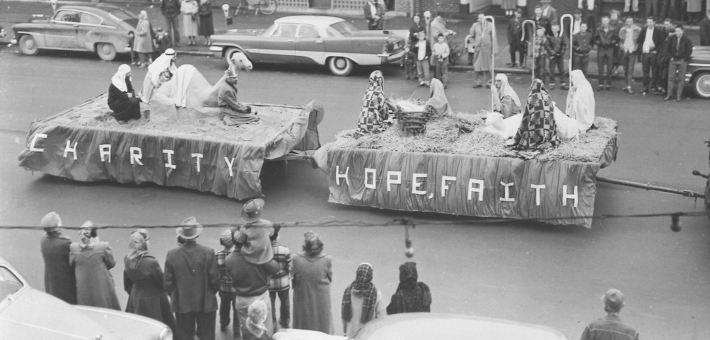Commentary on Isaiah 9:2-7
In 1943, Ruth Caye Jones, burdened by the grim headlines of mounting World War II casualties, sought solace in Scripture. From her reflection on 2 Timothy 3, she penned the now-familiar hymn:
In times like these, we need a Savior.
In times like these, we need an anchor.
Be very sure, be very sure,
your anchor holds and grips the solid rock.1
Her hymn gave hope in a world shaken by war. Yet long before Mrs. Jones penned these words, the prophet Isaiah spoke to a people in similar darkness. Centuries earlier, the prophet expressed his heaviness and dismay as he looked upon the oppressive reign of King Ahaz and the failures of Judah’s leadership (8:11; 9:1). Chapter 8 describes a time of internal political strife and foreign threats—a house divided against itself. In response to the uncertainty and upheaval of the times, the people sought guidance and hope from the occult rather than their God (8:19). Isaiah declared that this lapse of faith would only lead to greater darkness, distress, and anguish (8:22–23).
This darkness was both physical and spiritual. Physically, it represented God’s judgment—judgment that culminated in the invasion and destruction of Jerusalem and the exile of a vast majority of its populace. Spiritually, the people’s apostasy carried them further away from their Creator, Sustainer, and very Source of life. Prophetically, Isaiah sees the futility in the people’s misguided efforts and yet looks to a hopeful alternative: God’s forgiveness and the salvation of God’s people with the promised coming of a new king.
Isaiah juxtaposes the darkness of imperial invasion with the light of liberatory freedom. Presented as a past event, “the people who once walked in darkness” and “lived in a land of deep darkness” are about to experience something new. This something new was illuminating and celebratory and centered on the birth of a child.
The coming of this child had already been foretold in 7:14, “Therefore, the Lord himself will give you a sign. Look, the young woman is with child and shall bear a son and shall name him Immanuel.” Immanuel—God is with us! The transition from an unborn child (7:14) to the birth of a child (9:6) was the light breaking through the darkness. Rather than the yokes, rods, and bars of their oppressor, this child comes to this war-wearied group with authority, embodying the qualities of a compassionate and just leader: Wonderful Counselor, Mighty God, Everlasting Father, Prince of Peace (9:4–6).
Isaiah’s words “a child has been born for us” reach into a distant future as an angelic messenger informs a betrothed virgin, Mary, that she will conceive and bear a son and name him Jesus (Luke 1:31). In the most unexpected of places, a stable becomes a birthing center and an animal trough, a crib. It is in a barn that divinity arrives, cloaked in the garment of humanity, not as one with power and privilege, but as one of the most vulnerable in society, an infant.
A star would become God’s GPS as several magi followed its brilliance, which signified the birth of someone truly special, acknowledging the birth of a king—an encounter unlike anything they had ever experienced before. This child, born for us, is evidence of God’s love for humanity, God’s self-giving as the “Word became flesh and lived among us” (John 1:14). Divinity wrapped in humanity came to be with us, came to be one of us. This child, born for us, is the light that dispels the darkness. He came to be the life and the light to and for all God’s people.
The good news is that this child was not just born for us; this Son was given to us. This Son, given to us, expresses the depth of God’s love for us. John 3:16 captures this divine act of love: “For God so loved the world that he gave his only Son, so that everyone who believes in him may not perish but may have eternal life.” What kind of love is this?
It is the kind of love that is limitless. This love extends to everyone, regardless of age, gender, or ethnicity. This love extends to every community, is boundless in its scope, and is global in its embrace. This love breaks the chains of hatred and division, heals a weary and wounded world, and unites us in a shared vision for humanity. This Son, given to us, is God’s sacrifice, a gift of immeasurable worth.
Despite the dismal circumstances of his day, Isaiah’s prophetic proclamation looked forward to a messianic king—a king who would usher in peace, justice, and righteousness. As we celebrate the birth of our Savior Jesus Christ this season, once again we, too, wait with great anticipation for the arrival of the king promised so long ago. We sing with loud adoration, “Come, Lord Jesus, come!”



December 24, 2025